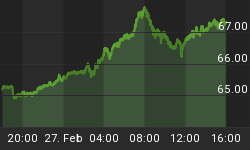
In English the title is Ship of Fools and the illustration is by Albrecht Durer, published in 1498. The inspiration is from Book VI of Plato's Republic. The first line is "Imagine then a ship in which there is captain who is taller and stronger than any of the crew. But he is a little deaf and has a similar infirmity in sight, and his knowledge of navigation is not much better."
It is doubtful that Plato could have contemplated an interventionist central bank based upon arbitrary notions rather than upon practical instruction from history.
However, he unwittingly set up the concept that led to such a destabilizing agency. Which was the confection of a "Philosopher King" whose wisdom would guide the community. In today's Federal Reserve System, the theoretical captain has a theoretical ship. The irony is that any tribe anywhere can come up with the concept of an omniscient and omnipotent ruler.
The wonder is that the practical side of modern society has tolerated the delusion for so long. Perhaps this will change when today's speculation completely exhausts itself and most asset prices go down.
For a couple of decades this writer has considered that any urges for sound central banking have been suborned by the need to provide unlimited funding for yet another experiment in unlimited government.
However, let's assume most central bankers still sincerely think that they can actually "manage" a national economy. Their main blunder is the concept of an economy isolated by political boundaries. There is no such thing as a national economy and the question becomes "How long can the delusion run?"
A war novel provides an interesting critique of method and dedication in the face of consistent failure. It could be called a parable of chronic error incapable of self-criticism.
Novelist C.S. Forester is known for his Hornblower novels about the Royal Navy. Non-seafaring novels include The African Queen (1936) as well as one about World War I, The General (1935).
The latter is an interesting review of just how the generals in that deplorable conflict got it so wrong, for so long. Sure it is a novel, but it gets the points across, particularly about theory and results.
"The whole opinion of the assembly was with him. The attack at Loos had been correct enough in theory. There had only been a failure in practical details and a deficiency of men and materials. It could all be made good. A staff that could handle half a million men in action could be found. So could the half a million men. So could the guns and ammunition for a really adequate artillery preparation."
Somehow, Draghi's "Whatever it takes" comes to mind.
"Quite noticeably the spirits of the gathering rose; within a very few minutes they were discussing the ideal battle…With visions like this before them, they could hardly be blamed for ignoring the minor details of machine guns and barbed wire. Minor details vanished into insignificance when compared with the enormous power they pictured at their disposal."
"In some ways it was like the debate of a group of savages as to how to extract a screw from a piece of wood. Accustomed only to nails, they had made one effort to pull out the screw by main force, and now that they failed they were devising methods of applying more force still,…of using levers and fulcrums so that more men could bring their force to bear. They could hardly be blamed for not guessing that by rotating the screw it would come out after the exertion of far less effort; it would be the notion so different from anything they had ever encountered that they would laugh at the man who suggested it."
Of course, proper deployment of many tanks by the Brits was the equivalent of the screw driver. Tanks and mobility materially assisted the end of that devastating war. It also marked the inevitable defeat of that dreadful European experiment in authoritarian government.
With the transition of state intervention from forceful in the 1960s to belligerent in the 1990s to astonishingly reckless more recently, central bankers are still trying to use a claw hammer to remove a screw.
Instead of standing back to criticize the system or their own recklessness, central bankers have been distracted by the problem of funding ambitious bureaucracy. To keep the perpetual motion funding going they must maintain bubbles in all asset prices. At the moment, they still think they have the power and if applied even more forcefully they will succeed. They cannot doubt or even criticize the method. Not even for a moment, not even in private.
But financial bubbles cause contractions and the next failure is just around the corner. With it the public will make some discoveries. One is common sense and the ability to criticize obvious failure involving their tax monies and prosperity. The collapse of every great bubble since the first one in 1720 has been accompanied by massive recriminations.
The public will also realize that no matter what titles they have, financial adventurers in quasi-state agencies are still financial adventurers. Ambition has overwhelmed scruple. To thwart this the public will force central bank reform that will include a de-nationalized currency that by choice will be convertible into gold. And above all, central banks will be forced to accountability. A Fed audit would be a modest start.
For their own posterity, central bankers will belatedly discover the claw hammer.
In the meantime, another precarious 'Ship of Fools' is drifting onto the rocks.















